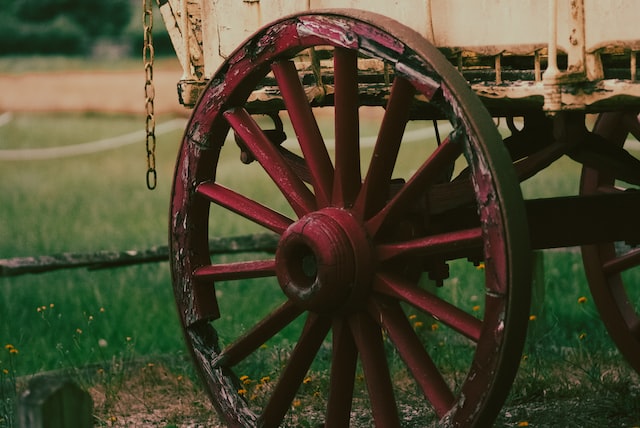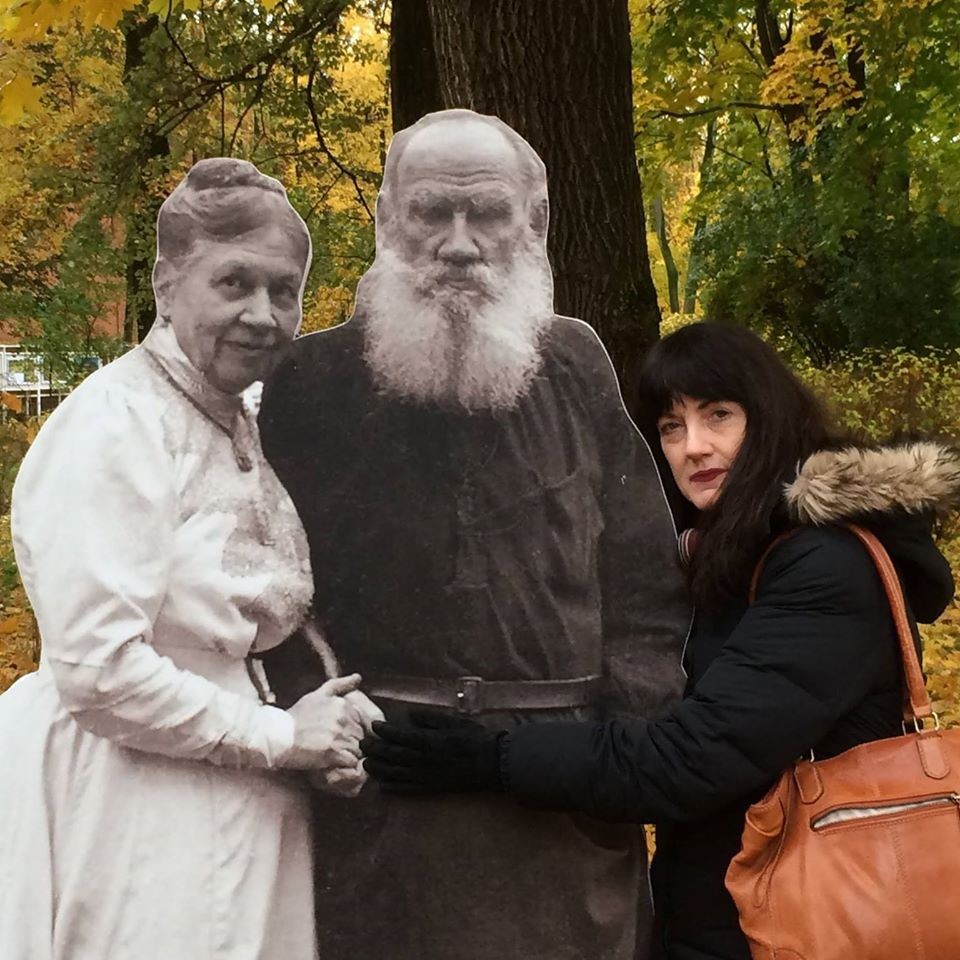Long hard unclean.
The day.
The coffin. Encrusted by the wind in topsoil.
White soil. Freckling my black skirt.
My mother’s gripping Pop’s arm, her silk gloves freckled, her veil bundling about her face in the wind. The unrelenting wind.
The man in the coffin.
Uncle.
That’s what Mama and I call him, anyway.
Called him.
Uncle. As stringy as barbed wire. As rusty. Spiky.
My best mate, Pop’s saying. A great bloke, the best ringer, knew how to ride, to muster, to shoot. Could start a fire in a snowstorm, find ice in the desert. Knew him all my life – like a brother to me.
Mama eyes me hard.
Where’s the wind coming from? West, no doubt, but from where? The sort of question Uncle pondered.
I stare at the clouds being herded. Soaked underarms, palms sticky-moist in the gloves. The bonnet chafing my underchin. This heat.
The priest takes charge, rambles. We bow our heads.
(Uncle, a man of so few words, of so little faith, would be riled.)
Pop failed to mention that Uncle was an extraordinary piano player. Those long wiry fingers. Hard. Yet soft.
His rhapsodies were never unclean.
But he is.
Was.
Like me.
*
Federation started it. Celebrations were dramatic, that day; I’d helped Mama feed the chickens and wash the sheets, wanted to settle down and finish knitting a stole I planned to sell, but Mama and Pop compelled me. Attend the ball, they demanded. It’s the Birth of our Nation! You don’t have to dance. Just watch. Mingle. Make friends.
Tired words.
Papa drove us to the town hall in the cart, and I limped up the long, jacaranded path to its maw. The only beauty was the music, soaring above the chaff.
Naturally the old ladies smiled wanly, tutted, shook their heads.
Poor girl, they said.
Around the town a hard brittle twilight grinned. Neverending.
Ribbons hung from the hall’s high ceilings, banksia and waratah and wattle adorned the formal walls. Queen Victoria glared at a photograph of Mr Barton. Chairs for the ladies, barrels of beer for the men, a long oak table daubed with food, a faint waft from the outdoor privy. Mama held her perfumed lace handkerchief to her nose, then waved at Uncle. His long hard fingers tinkled across the piano keys, a tune he knew was mine. His eyes, blinking in the sweat, twinkled at me.
I held my fan hard against my lip, looked down.
The candles ornamenting the hall bent in the heat. I stamped along with the pianola at hay on the floor with my good foot.
The young ladies and their beaus waltzed, then danced the Lancers quadrille. Their hair twirled in golden bows, their legs beneath their muslin skirts pranced as strong and subtly as a mare’s.
When the fiddler replaced him, Uncle asked me to dance. I snorted, poked my chin at my shrivelled limb. (Very unladylike, Mama would’ve said if she heard me, but she was laughing with the other mothers at the punch bowl).
I know you want to, said Uncle.
I’m getting air, I replied, then, when he moved to help me stand, I said, No.
From behind her fan Mavis Merriwether eyed me. Kathleen Calvert pointed her fan at my knee, giggling. Their young gentleman snorted like hogs.
Uncle was waiting for me as I stumbled from the privy, catching me as I tumbled into the dusty roadway. Don’t make me go back in, I whispered, and he walked beside me to the stable, close, not touching.
Sprawled against a pile of flattened hay (Mama would be horrified!) I tossed my gloves and bonnet at the wall, dragged off the red ribbon choking my neck. He lay beside me.
It’s bloody hot in there, he said.
And yes, a breeze coasted between the stable’s back and front gates, shoving at half-doors, sweeping the strays of hay and wool. The horses whinnied, snuffled. From the hall the violin blew notes in time with the wind.
I sang along, softly.
I’ll run run run to London town
I’ll find you there I know
My legs are strong as the wildest wind
From there with you I’ll go.
Come, said Uncle, and lifted me easily, held me tight, almost carrying me in a waltz.
I hadn’t danced since I was a wee thing.
Why? I asked. Why me, Uncle?
Don’t call me that, he said. You know my name.
I laughed too loud but the breeze carried my voice to the hills, far away from the rowdy hall. The candles glittered from its windows.
Well then, I said, don’t call me Myrtle. My name according to them in there is Poor Girl.
No.
Then no.
After we’d twirled around the bales and manure and clucking chooks he lay me down and rolled me gently on my side and unbuttoned my corset and pulled up my skirt and his hand found that part of me I thought I was the only one in the world to own.
He whispered, You’re beautiful.
I tutted, began to rise, pressed my fingers against my harelip.
Don’t, he said, I want to see all of you.
Not that.
Your lip, he sighed. It’s different, yes. But it’s yours. Without it you’re not you.
And my lame leg?
It’s special, he said, and lowered down and kissed my calf.
The following day Mama told me I seemed healthier. I limped the meals to the men when they returned for tea, couldn’t look at Uncle, fawned over my father.
Beat my leg that night with my fists.
Tore at my lip.
But then.
I laughed behind my fingers.
Three weeks passed sweetly. Uncle ate dinner with us each night, slept in the pantry room occasionally, snuck with me behind the cicadas and owls to the barn. I remember the full moon, as round and glaring as a white lie.
Protecting me.
And Uncle.
*
Then came the first funeral. The most important one, it was declared.
The Queen is dead! the newsboy cried. Long live the King. Mama covered our windows in black, Pop wore a black armband. We all wreathed ourselves in black lace and ribbons. Humidity and grief. Tight corsets, long pants, heavy skirts.
Bewildering.
The few shops in town remained closed, the pub refused to open. No more Federation celebrations.
But Pop and Uncle rode to the grazier’s farm; no holiday for that cocky’s workers.
*
The week before. Can I be your rouseabout? I asked Uncle. I can card and count. I can sort the wool. I can be with you all day.
Perhaps, he smiled. If you’ll be my wife.
Under a wild pear tree on a ridge nobody owned except the blackfellas I ran my finger along his long thin bones, tucked his greying lock behind his ear.
Nodded.
He tied a ripe poverty wattle around my ring finger.
He would ask Pop first. Before any announcement was made.
*
But then Victoria died and Pop and Uncle went to the grazier’s farm and remained there, shearing, for a week.
Or so it was supposed to be.
Time dragged. Days as long as years.
The school reopened and I sat before the children and one smirked as I lurched against his stool. Just read, Ben, I breathed, Prove to me you know your ABC, and stared without listening through the grit-smeared window.
Beyond the sky was whitewashed. A sheet of transparent nothingness.
Bloody muggy, isn’t it, love? one parent said as I waited for Mama to collect me at day’s end.
I waved goodbye as the last child skipped through the front gate.
I peered at my fob watch. (A secret present from Uncle.) The sun worked its way around the yard, up onto the schoolhouse’s porch, trying to trap me. But Mama didn’t arrive.
A big red watched me. His tail like a eucalypt, his shoulders pumped and merciless, his jaw set, all-knowing. He scratched at the air with his claws, rose high on that tail.
Telling me something. A warning, perhaps.
I’d never seen a kangaroo looming that large and, for a moment, I cowered.
Eventually he shook his long ears, hopped away on those ferocious legs into the shimmering haze.
The sun sank haggardly into the red horizon.
No Mama.
Perhaps our old horse needed shoeing; perhaps the buggy’s wheel was twisted again. Perhaps the flour hadn’t risen sufficiently for the damper, perhaps Mama had fallen into dreamland with the blowflies in the drowsy afternoon heat.
But no. As the cart eventually clattered through the dust on the ancient roadway her neck was taut and her eyes dour. She halted, way off. Unmoving. Her mouth as tight as the reins.
*
So here I am, today, at Uncle’s funeral. No crowd like Victoria’s.
Uncle told me the cocky was a stingy bastard, that he hated paying more than a shilling on his wagon repairs. Well Uncle was right. He found the proof when Uncle drove the cocky’s daughter to town and on the way back the wheel unhinged and drove into a ditch and Uncle’s neck was broken.
Mama has said nothing. No tears, not a drop from my eyes, but she’s watching me hawk-like. I can tell she suspects. She saw the way I handed the plates to Uncle at tea-time, smoothed the sheets on his camp bed in the pantry. Throw out that dead weed, she said once, and pointed at my ring on my bedside table. I hid it in my corset, felt it rub my breast daily.
Uncle.
I cross myself, murmur prayers, hide behind my harelip and lean on my lame leg so the pain shoots like inhumanity up my side.
Watch for him each night. On the horizon.
A long and lean man.
Photo by Jaye Haych on Unsplash.

